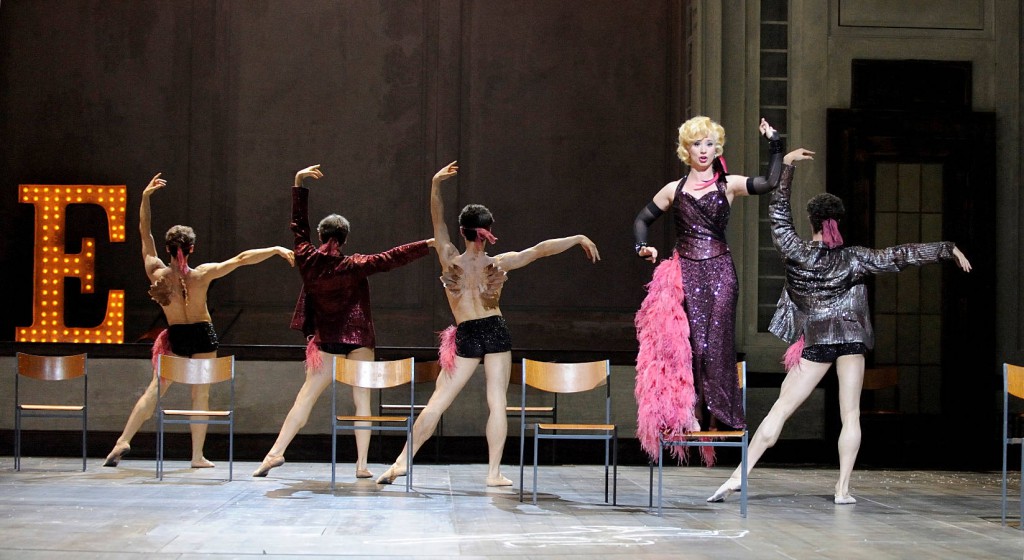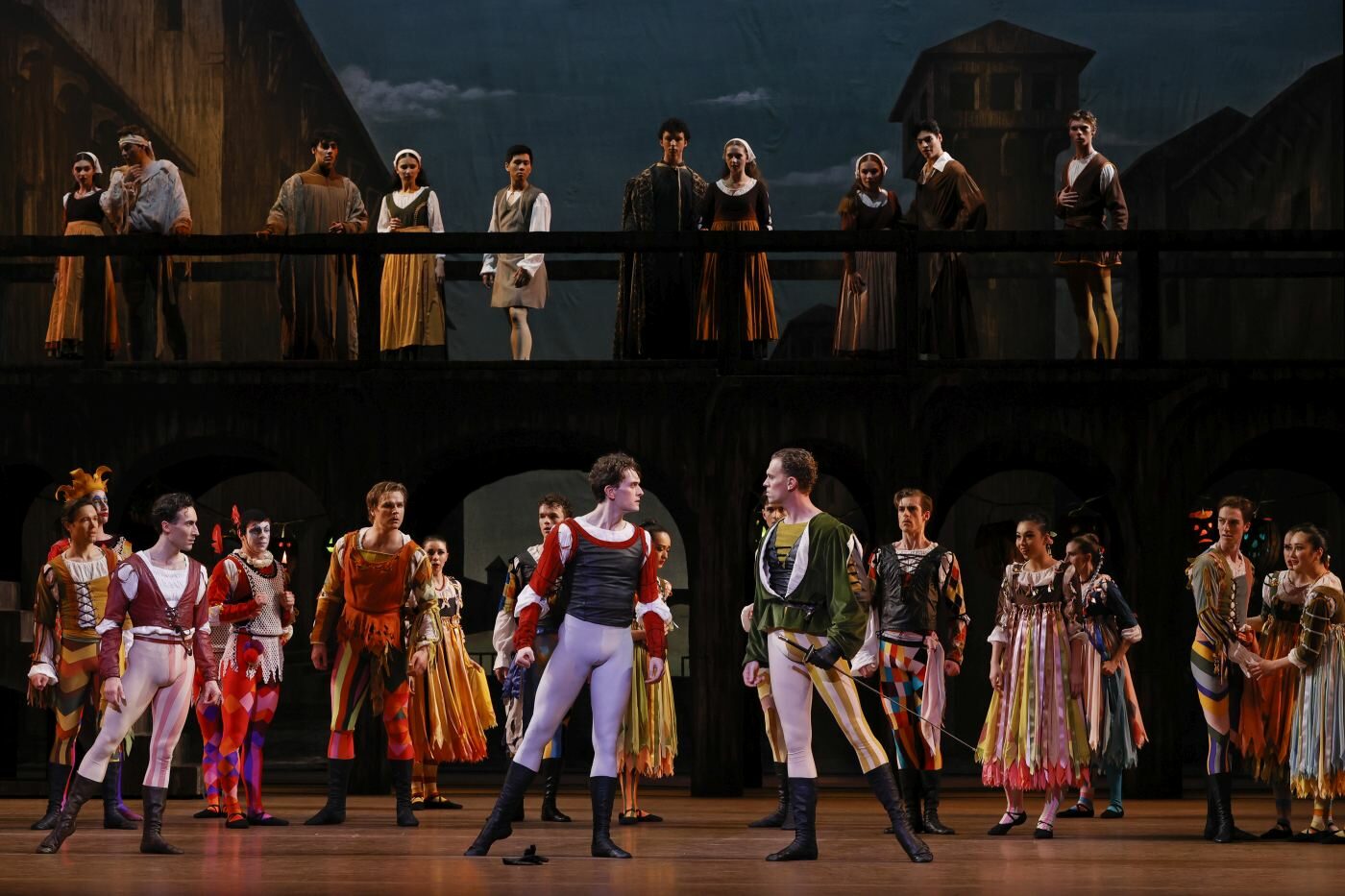A lightweight legend of lovers
“Orphée et Euridice”
Stuttgart State Opera and Stuttgart Ballet
Stuttgart State Opera
Stuttgart, Germany
May 08, 2014
by Ilona Landgraf
Copyright © 2014 by Ilona Landgraf
 Coproductions of opera and ballet are not the order of the day in Germany. Hence I looked forward to Stuttgart’s revival of “ Orphée et Euridice”, a 2009 production based on Christoph Willibald Gluck’s opera, directed and choreographed by Christian Spuck. Then Spuck was Stuttgart Ballet’s resident choreographer. Now he heads the Zurich Ballet.
Coproductions of opera and ballet are not the order of the day in Germany. Hence I looked forward to Stuttgart’s revival of “ Orphée et Euridice”, a 2009 production based on Christoph Willibald Gluck’s opera, directed and choreographed by Christian Spuck. Then Spuck was Stuttgart Ballet’s resident choreographer. Now he heads the Zurich Ballet.
Spuck used Gluck’s French version of the opera, a quite radical revision of the initial Viennese “Orfeo ed Euridice” from 1762, tackled in 1774 for Paris. Regarding French opera tradition and Parisien taste, Gluck adapted the original score and reworked the orchestration. As castrati singers weren’t established in France, he transposed the part of Orpheus to tenor. Further, the original’s ninety minutes were expanded into the dimensions of a full-evening to make room for extended ballet scenes. (more…)

